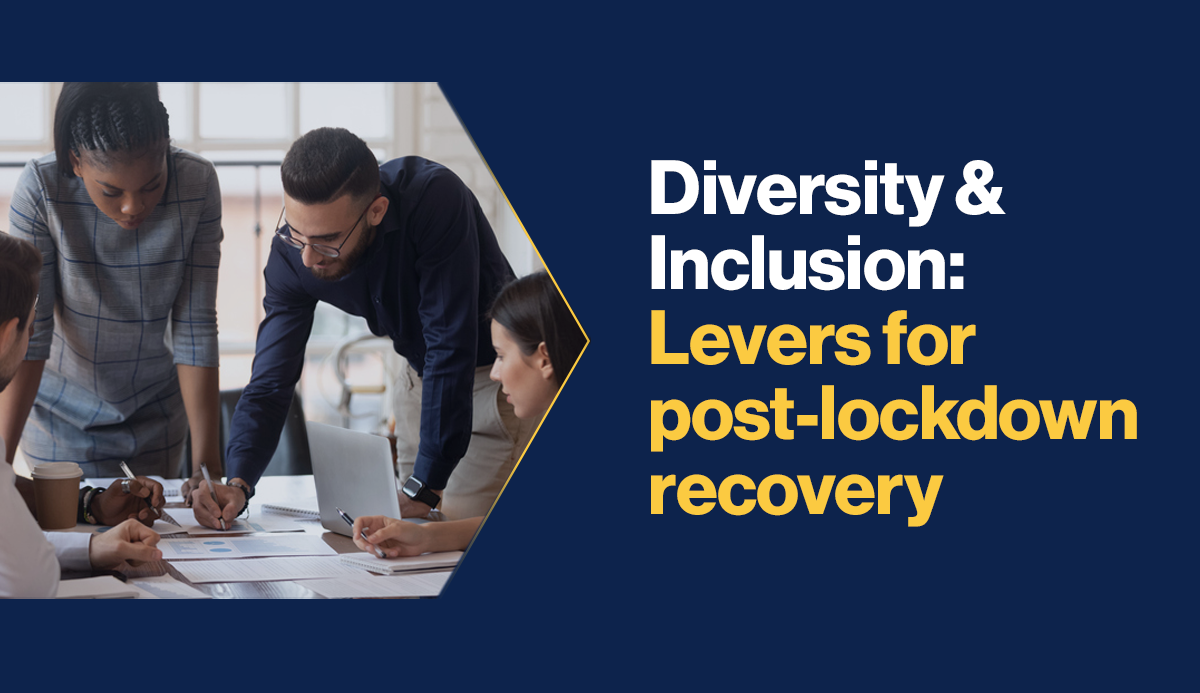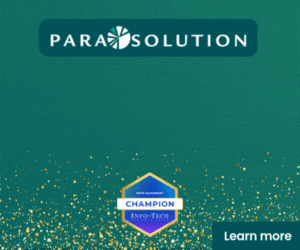Diversity & inclusion (D&I): Levers for post lockdown recovery

Post lockdown scenario
We are experiencing, at present, three mutually correlated crises, i.e. health, economic and social/organizational ones. Leaders and managers - during the recovery phase following the lockdown period - need to demonstrate their firmness and resilience to adopt - both economical and socially - a sustainable approach.
Diversity & Inclusion (D&I) criteria can be the solution. Companies and economies are preparing themselves for the unpredictable world of post-lockdown, and, at the same time, they are reconsidering what it implies and means to guarantee a sustainable activity.
The last few months have reminded us that innovative and agile approaches in organizations are key components; furthermore, collaboration, trust and mutual support are to be considered as fundamental to survival.
Based on the “lessons learned” from previous crises, it is highly likely that D&I fall back on the list of strategic priorities of organizations vs. their most immediate fundamental needs emerged from the contingent situation.
McKinsey, in a recent report entitled "Diversity still matters", states that only those organizations able to demonstrate their resilience and innovation -i.e., those that have ensured the implementation of D&I criteria - will be able to overcome the so-called “perfect storm” we are experiencing.
D&I: Two faces of the same coin
D&I are often interchangeable, but, actually, they represent two different ideas. When we talk about diversity in the workplace, we look after the creation of our organizations, i.e. employees want their workplace to reflect the outside world. Literal and figuratively speaking, the workplace should be diverse, fluid, mobile, connected like the world around us. Organizations need to make sure they invest in both diversity and inclusion, otherwise their efforts will not be rewarded. Many organizations experience D&I as a problem, or promote them superficially, thus renouncing to translating individual peculiarities into opportunities.
Diversity and diversity management
The term “diversity” refers not only to gender, linguistic, cultural, religious differences, but also to the so-called “aging”, that is, the contemporary presence of several generations within the same company – i.e. millennials, digital natives, including people less accustomed to the fast and pervasive spread of technology.
Differences must be seen as an opportunity, as each individual has unique strengths and, only by valuing these factors, it is possible to interpret changes, to address market challenges and achieve high performance. “Diversity management” is the managerial approach that promotes, facilitates and develops a process of lasting and profound cultural change within the organization; therefore, companies - through it - aim to include and enhance individual contributions and become the promoter of a management able to recognize different styles and managerial orientations.
A "diverse" company is the one that induces us to think differently and to consider curiosity and the ability to innovate as fundamental skills to be promoted through specific programs and management styles. Thus, complementarity - within a common project - is multiplied and all individuals can provide their more incisive and original contributions, not being mediated by standardization.
Inclusion
A more "inclusive" work environment contributes to greater well-being and a higher level of interaction, allowing people to feel free to express their potential, manifest their different thinking and generate ideas and, in general, innovation.
Relational dynamics are therefore "more open" to change and easily exchanged and, at the same time, improve contributions and a strong sense of accountability, i.e. the so-called individual responsibility. Moreover, the fact that workers feel more comfortable, and free to express their potential in the workplace contributes to an increase in motivation, in the efficiency and productivity of the company.
Inclusion involves the integration of diversity: namely, it is the process, through which, organizations make sure that their “diverse” workforce can feel part of the organization and “remain themselves” at work.
D&I: Precious lever during post lockdown
Companies that welcome and manage D&I criteria can, therefore, gain a greater competitive advantage and better market opportunities: thanks to a “diverse” workforce, they better represent the multitude of their stakeholders, thus responding to the real needs of the market. Furthermore, D&I criteria can contribute to greater creativity and innovation within the organization, thus guaranteeing more flexibility and better problem-solving skills.
Innovation, as added value
The global response to Covid-19 has emphasized the importance of innovation in unprecedented ways. We have seen examples of creative and innovative thinking in response to new and difficult challenges. In addition, we have learned that innovation is no longer optional: all companies, of all sectors, will have to apply an innovative mindset to face the contingent challenges. D&I criteria are one of the strongest tactics that leaders have at their disposal; therefore, it is desirable that, they should be guaranteed in order to overcome the contingent crisis.
McKinsey’s report reveals that, "... while inclusion and diversity are at risk, in times of crisis, on the other hand, they are key levers for business recovery, resilience and re-imagining."
It is proved that those organizations that have invested in the development of “diverse” & inclusive leaders and cultures - and, at the same time , in the creation of "balanced" executive teams - are better performing; while, those companies - that have partially implemented the D&I criteria - could benefit further in continuing the process.
Leadership & inclusion
The pandemic has changed the way we work, due to remote working; inclusive leaders – i.e. those who seek and value individual "perspectives" - can help create a greater sense of belonging, build a deep sharing of goals and ensure greater performance. Therefore, we urge to build connections between teams, so that people collaborate, effective and efficiently, in a context made difficult by the lockdown, due to physical distance and communication via video screens. Inclusive leaders also need to show more compassion (in the Latin sense of the term cum patior, i.e. participation in the suffering of the other) , kindness and curiosity for their working groups in order to learn more about them and be more empathetic with them. Actually, we can add value to today's broken environment by listening more to people and being more aware of each person's perspective.
Inclusion, as a culture
An inclusive culture can be a powerful resilience “engine” and help business to overcome the contingent crisis, since it is the “key” to promote innovation and agility and reinvent organizations in the post-lockdown: new ways of working, new products, new services, as well as, completely different business models to deal with contingent crises and complex challenges.
The best innovative approaches and solutions are required and can prepare organizations for the new global reality that is emerging. In addition, people with new ideas, from different backgrounds, will be crucial: companies with a culture based on trust, collaboration and inclusion are the ones where the best ideas will emerge and attract more "talented" and "diversified" staff, thus ensuring a more positive environment in terms of performance and additional resilience. On the contrary, those companies, based on rigid top-down schemes, will not be agile enough overcome the “empasses” generated by the Covid-19.
D&I to guarantee risk management & business continuity principles
D&I criteria, when properly implemented in the business context, can: ensure the proper implementation of Risk Management & Business Continuity principles; anticipate potential threats; effectively address unforeseen events, and learn from these events to facilitate organizational change. Thus, the organizational resilience can only be achieved collectively and as a whole: we need to understand the behaviour of the groups and functions that are part of the organization. Actually, we need to be aware of the role of D&I, at different levels, since they offer the basis of sharing knowledge and perspectives; therefore, "diverse" organizations better observe internal and external scenarios and identify potential risks, thus helping to manage "points of failure " before they turn into serious crises and developing a potential for resilience.
Conclusion
One of the strongest messages emerging from social distance and isolation is that human beings are, at their best, when they are "connected" and "engaged" to each other. D&I are the ingredients of deep and meaningful interactions. The business outcomes of a “diverse” and inclusive culture in the workplace go beyond feeling good about ourselves. They imply greater competitiveness, better results and, last but not least, contribute to the achievement of strategic business objectives.
This crisis is demonstrating that interdependencies among businesses, government and society can no longer be ignored: the company - to survive and prosper - needs healthy consumers, “functional” companies and a “diverse” and inclusive workforce; therefore, it becomes necessary to understand diversity and inclusion in a broader context. It is about spreading a culture of D&I, i.e. talk about how to welcome, include, “consider” and engage people - from all backgrounds in all areas of life - in a general holistic approach to life.
The Covid-19 is new to scientists and to our bodies; innovation becomes necessary to defeat the virus, but also to support the "workforce" that works remotely. And that's where D&I comes in: the many ways people think and bring their experiences, can offer a broader spectrum of perspectives that can help organizations overcome this unprecedented economic and health collapse. We urge to remember that people are the most valuable resource of companies and ensuring their well-being, diversity and inclusion is the “key” to overcoming the challenges of these uncertain times.


